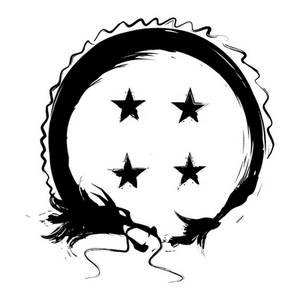“When looking at the use of face masks and mask mandates, studies consistently reported the measures were an effective approach to reduce infection. The evidence further indicates higher-quality respirator masks (such as N95 masks) were more effective than surgical-type masks.”
Prof Christopher Dye, professor of epidemiology at the University of Oxford, said: “The next thing is Disease X as WHO (World Health Organization) has called it
Twitter rebranding as the next pandemic, classic Enron
No shit, sherlock! I’ll inform pikachu right away. Brb.
No shit.
This is news? I thought we already knew that loke one year or more ago…
We’ve basically known it since germ theory, or maybe before. Still, it doesn’t hurt to have the study to point crazy people to. They won’t believe it, but it at least ensure anyone else reading might not trust them.
Remember when early in the pandemic the news and the CDC was saying masks won’t help?
I remember it as saying they won’t be perfect and won’t help enough, and also that people in critical positions (Healthcare specifically) needed them and the supply was limited. I don’t think I ever heard from an official source that they wouldn’t help, but I’ve heard many people say they said that.
Here is an overview of how the government’s recommendations changed over time. They were explicitly advising against wearing face masks and saying they don’t work. Ex:
U.S. Surgeon General Dr. Jerome Adams tweets that wearing a face mask will not prevent the public from contracting the novel coronavirus.
“Seriously people — STOP BUYING MASKS!” he wrote in a tweet that was later deleted. “They are NOT effective in preventing general public from catching #Coronavirus
You mean the right wing extremist crazies who exaggerate everything from EV fires to being unable to breathe in masks were wrong?
Huge shocker. They definitely seemed so confident
deleted by creator
When the people who claimed “masks don’t work” convince the Royal Society to publish an 80 page report similarly supported by academics at Oxford, Cambridge, Imperial, St Andrews, UCL, and Edinburgh (among others) then they will definitely deserve to be equally confident.
No shit Sherlock
it’s always good to verify your hypothesis even if it’s seemingly obvious. Just because something seems like it’s logical and how it should be doesn’t mean it is.
This is why I am starting to conduct my study into if fire is hot.
It appears to be, but I feel extensive additional researchers required.
“Ow”
Except in this case we already knew the hypothesis was correct
did we? were there studies done? and if there were what’s the harm in repeating and verifying?
In the same vein now we now exactly how much more effective it is vs alternatives. Studies often answer many questions at once even if on the face of it the study’s result seems obvious
you should start at the wikipedia page for false equivalence instead
Probably more lockdowns than facemasks (at least how people were using them)
you mean wearing it under your nose and pulling on it when talking makes it less effective?
You mean my cloth mask and beard might not have been so effective?
(I like to think at least I was protecting other people a little…)
It’s better than nothing as long as you were wearing it correctly and kept time exposure as low as possible. N95 would’ve been best of course
Masks were mostly effective at stopping someone infecting others.
Only properly sealed N95+ masks would really be effective on the receiving end.And sadly, that meant that the (non-exempt) selfish bastards who refused to wear them still spread it around.
So you were definitely protecting other people, and did a great job :)
My company’s owner (were an MSP, maybe 30-40 employees back then) somehow got a backdoor deal on some N95 masks for us at the company, and we had a lot of work from home too. I’m not sure they were quite as good as official ones, but they were still pretty good until more masks became available.
You have to get Fit Tested to find the right N95 respirators. You likely had KN95S respirators.
They work just as good.
Cloth masks still work to slow down particles coming out of you so they don’t spread as far, so it’s still helpful to prevent spread. It just doesn’t filter things that well, so anything you’re breathing in is still just as likely to infect you. It’s a good safety measure, particularly if everyone is wearing one. It doesn’t work well if everyone except the infected person is.
@theletterd @merridew
There’s cutting, and there’s deflecting.
A demographic shift is observed in the USA, related to political stupidity and preference on mask wearing.
Interesting, although I’d like to see a comparison with countries like Sweden who made advisories instead of compulsion
I had a very enjoyable lockdown, no planes, no cars, had a dog so could go out, and I enjoy solitude, but those in not so good domestic situations or extroverted types must have found it tough.
Sweden was a bit of an outlier though. Most younger Swedes live alone. And they tend to follow government advisories. New Zealand’s strategy was stellar, particularly early on in the pandemic. You could do what you want. I remember we were out having concerts as if there was no pandemic, thanks to the zero COVID strategy. But by late-Delta, early-Omicron, zero COVID could not longer be sustained, and it was clear only mitigations would stick. The government hoped to eliminate it like they did the other times, but it was just impossible then, people had become complacent. But yes, on the healthcare-side and economic-side, NZ fared better than Sweden.
Thanks, I’d forgotten how well NZ had done. I wonder if the SARS epidemic made them better prepared compared to Europe.
The only pandemic threats I recall in the UK was bird and swine flu.
I’m sure that played a part of the early response. But then we were also lucky that, it didn’t initially spread on our shores early on. So the initial first lockdown, and a few subsequent ones, were short and sweet. But then the later ones, we got a bit complacent. It was also when the conspiracies and anti-vax movement was taking off…
This is the best summary I could come up with:
Measures taken during the Covid pandemic such as social distancing and wearing face masks “unequivocally” reduced the spread of infections, a report has found.
Experts looked at the effectiveness of non-pharmaceutical interventions (NPIs) – not drugs or vaccines – when applied in packages that combine a number of measures that complement one another.
Prof Sir Mark Walport, the foreign secretary of the Royal Society and chairman of the report’s expert working group, said: “There is sufficient evidence to conclude that early, stringent implementation of packages of complementary NPIs was unequivocally effective in limiting Sars-CoV-2 infections.
Additionally, the report found that in school settings, closures and other distancing measures were associated with reduced Covid-19 cases, but the effectiveness varied depending on a range of factors, including adherence and pupils’ ages.
For the future, the report recommends establishing international protocols for conducting clinical trials and observational research on NPIs in advance of further pandemics.
The report draws together the findings of six expert-led evidence reviews, published in a special themed issue of the journal Philosophical Transactions of the Royal Society A.
The original article contains 695 words, the summary contains 179 words. Saved 74%. I’m a bot and I’m open source!
Unequivocally - never heard that word. It means clearly or definitely.
It’s a perfectly cromulent word.
My knowledge has been enbiggened.
Cromulent - never heard that word. It means acceptable or adequate.
Those of you that may be a bit lost on the reference:
https://www.youtube.com/watch?v=b4qP42Aqpbg (Simpsons)
Reminds me of a birthday card with George W. Bush on it. It said “I unequivocally wish you a happy birthday!” on the front and “Uh, unless ‘unequivocally’ means ‘don’t.’” on the inside.
No, really? Wow.
I’m so glad they conducted a study, that was money well spent that was.
🤯
Removed by mod
Phew - luckily no-one died or got infected, or my wife had to volunteer to turn intubated patients in ITU because the nurses were exhausted.
I assure you i’m not capable of having been infected by a computer model, and I have absolutely been infected with covid-19 in the past.
deleted by creator
Ooh, “alleged infection agent”. Are you one of those funny people who claim HIV doesn’t cause AIDS?
deleted by creator
If they’d called it Dogs arse Flu you wouldn’t even comment.
This is totally irrelevant?? It was a coronavirus, not a flu virus, which is why it’s not called as some kind of flu strain.
P.S. Sar-cov2 is the alleged infection agent and not Covid19, which is a list of basic symptoms.
It is the infection agent. Not the “”“alleged”“” infection agent. Also casual conversation and speech is a thing .
deleted by creator
deleted by creator
Your brain is good at many things.
Your brain is not as good at some things – for example, complex statistical analysis – as the collective brains of lots of other people who specialise in that thing all working together.
So you believe literally nothing anyone tells you at all?












